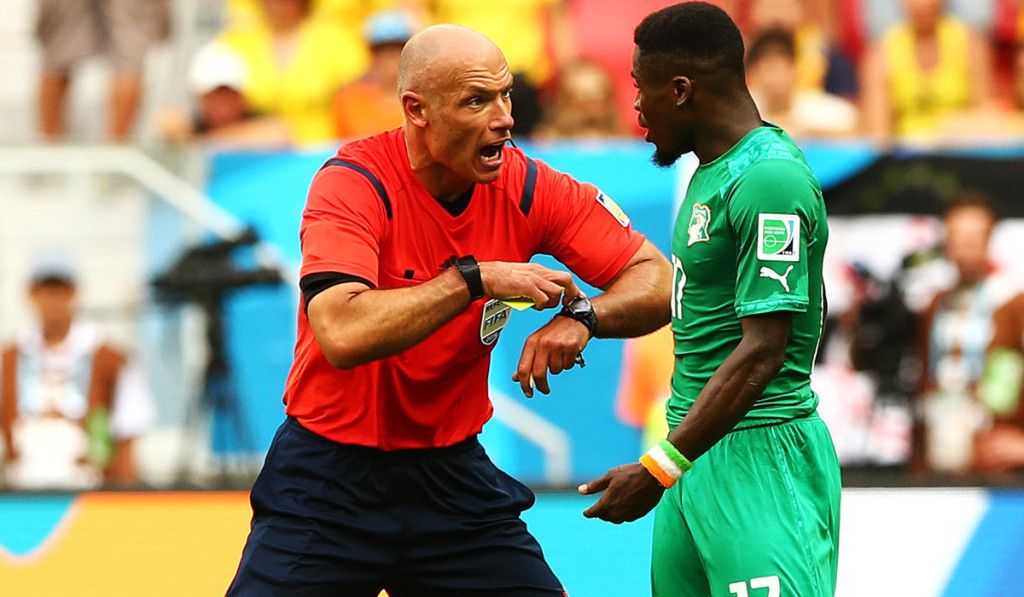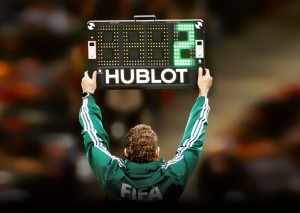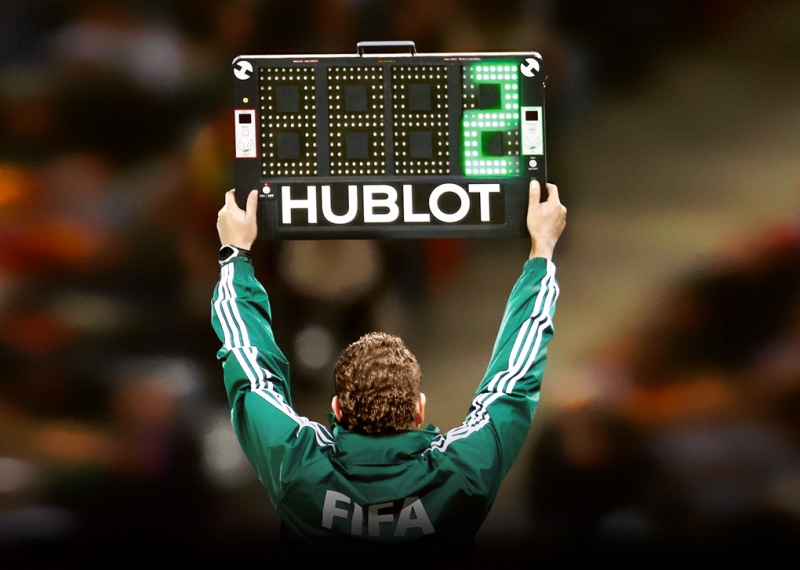To celebrate the World Cup in Brazil, Dear Sports Fan is publishing a set of posts explaining elements of soccer. We hope you enjoy posts like Why do People Like Soccer? How Does the World Cup Work? Why Do Soccer Players Dive so Much? What is a Penalty Kick in Soccer? What are Red and Yellow Cards in Soccer? and Why do World Cup Soccer Players Blame the Ball? The 2014 World Cup in Brazil begins on June 12 and ends on July 13.
Dear Sports Fan,
I’ve been loving the World Cup this year! One thing I don’t understand though — what is stoppage time in soccer? If the game is 90 minutes, why isn’t it over when the clock hits 90? How does it work?
Thanks,
Andrew,

— — —
Dear Andrew,
Stoppage time is the time between when the clock shows that time is up in a half, period, or game, and when it is really over. It’s definitely a strange wrinkle that exists only in soccer and it’s typical of the type of absolute power that soccer gives the referee. It also encourages bad behavior among the players and hints at some of soccer’s darkest moments. Here’s how it works.
At the start of a game, the clock starts counting up from zero. The first half is forty-five minutes long; same with the second. In the knockout stage of the World Cup, a game that is tied at the end of regulation time will play two fifteen minute halves to try to decide the game. If it is still tied after that, the game will be decided by a penalty kick shootout. During all of this, the clock that you see on your television is unofficial. I mean, I guess it’s official, but it’s basically meaningless. The only time that matters is the one on the watch of the referee on the field and the “fourth official” who stands on the sidelines. The refs are allowed and supposed to stop their watches whenever various things happen. According to FIFA, the international body that runs soccer, these things are:
- substitutions
- assessment of injury to players
- removal of injured players from the field of play for treatment
- wasting time
- any other cause
FIFA’s rules go on to say that “the allowance for time lost is at the discretion of the referee.” The clock on the television may count up to 46 minutes or 48 minutes or 49:36 before the ref blows his whistle to end the first half. When the second half begins, the clock has been reset to 45 minutes? Why? In soccer, the ref’s watch is what matters, and a half is 45 minutes no matter how long it actually takes. If your watch or the television clock told you the first half took longer, you were mistaken. It took 45 minutes. Yep — the amount of time that a soccer game is played for is totally up to the ref who is explicitly allowed to add time to the game for literally anything.
You might be thinking that this is a lot of power for the ref to have. It is! Soccer generally gives more power to the ref than other sports. In NHL hockey there are two refs on the rink, in NBA Basketball there are three, and in NFL football and MLB baseball there are a gaggles of officials big enough for a healthy poker game if not a square dance. In soccer, the ref is alone on the field with the players. He or she makes every important call, and because soccer is such a low scoring game and fouls can result in penalty kicks that almost always result in goals, foul calls are often extremely important. The fact that the ref also is the only one with the power to end the game fits into the pattern of the nearly all-powerful ref. When combined with gobs of money, the power of the ref can easily become problematic. If you’re interested, read this recent Telegraph article about how an investment company planned to fix the result of international soccer games by hiring corrupt refs.

A downside of the stoppage time rules is that it encourages players to waste time if their team is winning. You see them do this by choosing to stroll off the field by a scenic route to the sidelines when being replaced by a substitute, by taking their time to put the ball back into play on a throw-in or a goal kick, and by rolling around on the ground in agony for what seems like hours after being touched lightly on the ankle by a passing butterfly. It seems counter-intuitive that this would work. If anything, the fact that the ref can stop the official clock whenever he or she wants should prevent delaying tactics from being effective, but the truth is that refs only ever really add between one and five extra minutes to a half. I’ve seen six but I can’t remember ever seeing seven minutes added, no matter how silly the players were being. So, delaying the game when your team is up can be an effective strategy if you do it flagrantly enough. The Wall Street Journal just released a statistical analysis of the games in the group stage of the 2014 World Cup and found that:
“The amount of histrionics your players display during a match correlates strongly to what the scoreboard says. Players on teams that were losing their games accounted for 40 “injuries” and nearly 12.5 minutes of writhing time. But players on teams that were winning—the ones who have the most incentive to run out the clock—accounted for 103 “injuries” and almost four times as much writhing.”
Stoppage time has been around for a long time, although like the actual duration of a soccer game, no one is exactly sure how long. The Chicago Tribune claims that timekeeping in soccer has been done this way since at least 1913. The custom of publicly estimating how many minutes of stoppage time will be added (this is what’s going on when the fourth official on the sideline holds up a sign with a number on it at the end of the half or game) has only been around since 1996. I’m not sure that the customs are connected but soccer stadiums invariably take the time off their scoreboards ten or fifteen minutes before the end of the period as a form of crowd control. Given the long and horrible history of soccer stadium disasters, this is a common sense maneuver. Although the uncertainty about when the game is going to end adds a certain type of drama, it also takes the edge off the craziness that a last second attempt on goal could create.
I hope this post has helped take the edge off the craziness of stoppage time,
Ezra Fischer


As usual, I enjoyed reading your well-written and informative post!